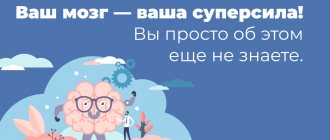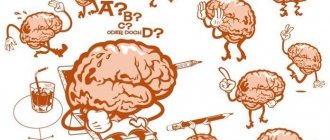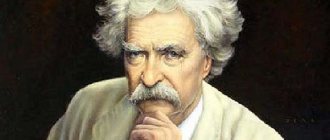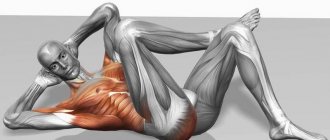1 965 January 3, 2022 at 15:05 Author of the publication: Evgenia Astreinova
We live in an age of huge information flows and crazy speeds. To be successful today means constantly processing large amounts of information. Accurately separate reliable data from false, useful from useless. Learn what is needed and use your knowledge constructively. When it is difficult to cope with this, we lose our competitive advantages and are left behind in life. And many people have a question: how to increase concentration?
How to develop and increase concentration
Concentration is the conscious focusing of attention on a selected object. It can be an object, image, idea, situation and much more. The mind purposefully selects from all possible points the one to which it will direct its attention. From this we can conclude that attention is selective, just like concentration. Otherwise, concentration is also called focus of attention. In order to increase concentration, you need to analyze what components it consists of and to improve which parts of it you need to put more effort into.
Human concentration
In textbooks on theoretical and practical psychology, they write a lot on the topic of human concentration, because wherever you look, we use it everywhere. Our daily life is not complete without concentration and focus. Even in order to take simple actions, make a decision, or find a creative idea, you need:
- Concentration of consciousness, or otherwise a volitional effort, in order to direct attention in a given way.
- The next task is to maintain attention on the selected task or subject.
- While maintaining attention on a specific object, the process of information processing occurs - thinking, searching for options, exploring problems.
- Coming out of the state of concentration means successful completion of the task and marks the end of the process. The focus of attention is limited in time, but you can learn to develop it and make it longer, so that in one session of concentration your work becomes more productive and leads to high-quality results.
Take regular breaks
There is no need to explain that being fully concentrated for eight hours straight is simply impossible. This is why, for example, air traffic controllers alternate 25-120 minutes of work with 15-45 minute breaks throughout their shift. They have thousands of human lives in their hands, which requires utmost attention. [12]
You can use a similar pattern of concentration and breaks in your life during exam preparation periods. In this case, shorter periods of intense study are likely to be more effective.
- To start, you can try a pattern of twenty minutes of study followed by five minutes of rest.
- After six such periods, take a longer thirty-minute break , and then six more sessions.
- With this system, you will spend a total of five and a half hours studying and taking breaks.
During study periods, you'll likely be able to concentrate better because your mind will be rested with regular pauses . In fact, you can learn the same amount of information in five hours as in eight hours of casual study. Depending on your needs, your skills and the intensity of your activity, you can extend or shorten the concentration period to create your ideal learning system. [12]
So you don't have to constantly set alarms to tell you when the period ends, use the Forest app. It will be able to track time and will not allow social networks to distract you. Well, if you successfully master such a training unit, you will grow a tree in your virtual forest. It's worth it!
How to improve your concentration
There are various methodologies to improve concentration. They use special techniques. But before we talk about concentration techniques, we need to consider the factors that negatively affect the mind and its ability to concentrate.
Agree that if our mind were not constantly distracted by external stimuli and were more focused, then we would not be looking for ways to increase the efficiency of attention.
Often we study ways to improve attention not because we want to develop it, but because we notice how it has decreased. The length of time during which we are accustomed to concentrating on something has rapidly decreased, and we know the reason for this deterioration.
Human dependence on means of communication
The development of the Internet, mobile technologies, social networks, fragmented communication, and the habit of working in multi-task mode lead to a decrease in attention span and subsequently even to attention deficit disorder.
Separately, I would like to highlight the so-called multi-task ability - performing several tasks at the same time. The new concept of efficiency, which is still almost extolled to the skies and considered one of the characteristics of effective work, in fact leads to the opposite - to disorganization, lack of focus, increased stress and a drop in the quality of task performance.
Mobile devices and endless chatting seem like cute and fun entertainment or a common means of communication in professional activities. However, they bring little benefit to the human psyche. The negative impact of new technologies has long been scientifically proven. But who cares, when a large number of modern people cannot live without checking messages on social networks and instant messengers every hour.
It has already become a kind of addiction. But it is precisely the dependence on technology that creates the appearance of action, the illusion of the fullness of life. If we exclude this component, what will remain? Emptiness, when a person is finally left alone with himself, then he does not know what to do with himself. Thoughts are spinning in your head, you need to come up with something again, another action, what to do, where to go, what music or movie to entertain yourself with again.
Man has already forgotten what silence is. In real external life it does not exist and never existed. What about the inner world? Is there silence there? It would seem a strange question - we don’t talk to ourselves. This is where we are wrong. We're still talking. And all without exception. Listen to your thoughts at this moment. What are you thinking about? What is your mind telling itself? This is how the endless dialogue with ourselves continues, and we don’t even notice it, deafened by the outside world and the noise of its entertainment.
Establish control over your thoughts
Thoughts can appear independently of our will. However, it is quite possible to direct them in the right direction. Having noticed that the thought process has moved on to another topic, you should either take a break or discard thoughts that interfere with your work . Regular training will help you quickly direct your thoughts in the right direction.
Thus, the ability to concentrate helps to achieve the goal. It all depends on your mindset to win. Consistency, perseverance and patience will help you overcome the obstacles that arise in life and prevent the situation from getting out of control.
To test your level of concentration, do the “Line” exercise.
You will need a blank sheet of paper and a pencil. Start drawing the line slowly. All thoughts should be focused only on this process. As soon as an abstract thought appears, draw a small peak. This is reminiscent of a cardiogram. The number of peaks indicates the appearance of extraneous thoughts. It is considered that concentration of attention is good if not a single peak is recorded on the line within three minutes.
Methods of concentration
A huge number of methods of concentration are aimed at narrowing perception and directing the area of attention along a clearly limited channel. This, of course, makes sense if we want to continue to transform ourselves in the image and likeness of a well-oiled machine. On the contrary, if the goal of our search for the right method is also to improve ourselves as an individual, then we need to approach the choice of methods more responsibly and find ones that would be aimed at the comprehensive development of attention and other cognitive abilities. At the same time, we will not only improve our concentration, but also direct our efforts to improve ourselves as individuals through the study of our spiritual essence. A person’s deep awareness of himself as a unique personality is inseparable from the process of self-knowledge.
Make sure you get enough sleep
Sleep makes everything in our body work as it should. If you voluntarily deprive yourself of this, rest assured that this lack of sleep will affect you sooner or later. Due to increased fatigue and instability of neurobehavioral function, sleep deprivation affects cognitive speed, attention, working memory and other abilities. According to experts, insufficient sleep can cause a crisis in relationships due to increased moodiness and conflict. It also affects your safety and overall quality of life. [13-15]
To avoid these negative effects, make sleep a priority. If you can set a time limit for work or exercise, make sure you also set aside seven to nine hours each day for restful sleep . Ventilate more often and maintain the temperature around 15-18 degrees in your bedroom. Try to keep the room quiet and dark. Avoid heavy meals, alcohol, caffeine and late night workouts. If you are interested in other tips for falling asleep faster and getting quality sleep, take a look at our article How to fall asleep quickly? Try these simple tips to improve your sleep quality.
Exercises for concentration
In the practice of yoga, which is completely dedicated to understanding one’s essence, much attention is paid to the study of the human psyche, the processes of cognition and the development of spirituality. In order to illustrate what has been said, we will provide a short list of exercises and techniques that contribute to the development of a person’s intellectual and mental abilities.
Meditation
Meditation promotes the development of conscious attention, analytical thinking, intensification of empirical experience and knowledge of oneself as a spiritual entity united with the whole world. Types of meditations useful for mastering in the initial stages of self-knowledge:
- Trataka
- Analytical
- Dynamic
- Vipassana.
In preparation for meditation, you can practice dharana. This is concentration on an object followed by disidentification of oneself with sensory experience (only for the duration of practice).
Pranayama
It makes sense to practice control techniques and concentration on breathing immediately after meditation or simultaneously with its development. Pranayama is a great way to bring your attention to the process of breathing. With its help, you can not only completely restore lost concentration, but also immerse yourself in your inner world and better understand yourself. Four types of pranayama that are best to start practicing:
- alternate breathing - Anuloma Viloma;
- intermittent breathing - Viloma;
- “square” breathing - Samavritti;
- extended breathing - Apanasati Hinayana.
Ways to concentrate
Stopping internal self-talk is the most effective method for concentrating the mind and clearing the mind. Usually this method is not covered in special literature devoted to a person’s work on general efficiency and self-development. Instead, preference is given to lower-order techniques that increase concentration by 20 percent. The efficiency of such programs and methods for developing concentration is very low.
But the results are presented to the public as outstanding; the course participants need to be given a sense of pride in themselves. Therefore, by setting the bar lower, it is much easier to achieve what is stated in the program. If you set higher goals for yourself and think about how to radically increase the power of concentration, then you need to work on yourself. It all starts from the beginning, with introspection, awareness of yourself as a person and what qualities you would like to develop.
You need to create an image of yourself, how you would like to see yourself in the future. When such an image is formed, its mental picture appears, then you can begin to work on acquiring the desired qualities that need to be developed.
Many people say that they have no concentration - what to do in this case
A large number of people ask the question: “What to do if there is no concentration?” We have already figured out the reasons for the lack of concentration. We need to start solving the problem in order to minimize the impact of distractions on the psyche:
- try to establish temporary control over your stay on social networks;
- spending time with friends face to face;
- increase the time you are present in real life;
- devote more time to activities outside the sphere captured by the Internet;
- reduce the use of mobile devices;
- increase physical activity;
- find a new hobby and devote more time to it.
In order to implement an action plan to reduce the time spent on the Internet and, therefore, transfer the sphere of communication into the real world, where the interlocutors are located opposite each other, participation in joint events and retreats is well suited.
Methods of concentration
If you are very determined, then you can arrange a kind of communication “diet” or, even better, a “fast”. It looks like this:
- you are completely disconnected from the outside world - no media, instant messengers, communication with friends;
- stay in silence, isolated from external stimuli;
- practice meditation, which helps to establish internal silence;
- initiate spiritual practices, which helps to establish a connection with the inner “I”, reunite the disconnected parts of the internal image and self-understanding.
As a result of all this, you will experience changes in your perception of reality. Lost concentration will return again because you will learn to control your thoughts. You will begin to be aware of them. This is what meditation teaches us. You will be able to monitor the direction of your attention and clearly notice those moments when it is about to be distracted. You will be able to return it in the direction you need and stop worrying in vain about your inability to concentrate.
The determining factor in the focus of attention is curiosity.
It is impossible to achieve concentration of thoughts without choosing a goal of attention. By choosing what you need to focus on, realizing your goals, all the “why” and “what for” you want to concentrate on, it will become much easier for you to direct your consciousness in a given direction. Understanding the meaning of what you are doing is very important. To paraphrase Nietzsche, we can say that if a person has WHY to concentrate attention, he will find an opportunity HOW to do it. Find out why you want to study a certain topic, read a book, listen to a lecture, etc. Your attention will naturally follow the goal found.
Interest, curiosity - try to awaken these qualities in yourself. Unfortunately, they are forgotten; the motive for many actions is not inner desire as such, but the pressure of necessity. It turns out that a person is doomed to a boring existence, where obligation prevails over the joy of knowledge and discovery.
Bring enthusiasm and healthy curiosity back into your life, and you won't have to suffer from the awareness of the dull flow of everyday life. You will understand that there is no such thing as empty and small. There are no small things in life. The only difference is what position you decide to take, whether to open your mind to new things or continue to dwell in the old paradigm of thinking.
By changing your outlook on life, you will begin to understand your goals more clearly, you will find yourself, and every moment of your life will be filled with meaning. Looking back, you will remember with a smile where your self-knowledge began, the journey into the depths of yourself - with that very work on concentration! No matter how great your problem was, you managed to solve it, and with it, find yourself.
Prioritize and avoid multitasking
Multitasking, or the ability to juggle different jobs at once , is a skill that all managers and other people who don't get everything they want done during the workday would like to have. But is it really that beneficial?
You probably think this is good. You can multitask, like listening to a podcast while you vacuum or watching TV while you eat. But the point is that you really can't fully concentrate on two things at the same time. Either you concentrate on the TV and eating is an automatic activity that you put on the back burner, or you give all your attention to your food. But then you lack information on TV. This multitasking forces the brain to switch from one activity to another. If you can do this quickly, you will feel like you are able to give full attention to both activities at the same time. Unfortunately, it is not.
Now let's bring this multitasking into our work life. You are writing an important email, trying to express your thoughts more precisely. A colleague comes up to you and begins to explain his work problem that you urgently need to solve. Can you still multitask? When performing more complex tasks, your brain can no longer switch between activities as easily, so you are forced to stop writing your email and focus completely on your colleague. After the situation is resolved, you want to go back to writing the email, but find that your train of thought has been lost. So you need to read the last few sentences to get back to the point. Ultimately, combining these activities will take you longer than if you did them gradually. At the same time, labor productivity can drop by up to 40%. Beware, this applies to women too. Research shows that women are equal to men in multitasking. [7-9]
Before you multitask, remember this article and slow down a little. It will be much more productive if you prioritize and determine which task is most important right now and devote all your attention to it. Feel free to inform your colleagues so they know not to bother you. This way you will work more efficiently and be able to leave work earlier. It will also help if you hide your phone in a drawer or take it to another room. This way, you won't have the desire to constantly check what's new in the world.
The point is that you cannot fully concentrate on two activities, and you should always neglect one of them. Think about this when you get into the car. If you need to send someone an urgent message, stop and take care of what you need to address. This will help you avoid one of the most common causes of accidents: using your phone while driving.
Proper nutrition
Think about how you feel when you eat a heavy meal at midday. Can you concentrate on work when you feel like taking an afternoon nap ? Most likely no. Eating excessively fatty foods, large portions, high-carbohydrate foods, or fast foods can reduce your productivity. [16]
To avoid feeling drowsy after eating, make sure your food doesn't contain too much fat. Focus on lean sources of protein (such as lean fish, chicken and turkey), complex carbohydrates (such as whole grain pasta, couscous, quinoa) and don't forget fruits and vegetables. Instead of stuffing your stomach with food three times a day, try to divide your meals into 5-8 smaller portions. Your body will be able to digest them more easily, and you will concentrate better. [16]
For maximum concentration, you can include blueberries . It contains beneficial anthocyanins, which help increase brain activity. The optimal serving is approximately 60–120 g of blueberries per day. [17]
Of course, you should not forget to drink enough water. You should drink approximately 30-45 ml of fluid per kilogram of body weight every day. With frequent training or hot weather, the need may be even higher.
You can find even more useful tips on healthy eating in our article What is healthy eating and how to learn to eat right?









